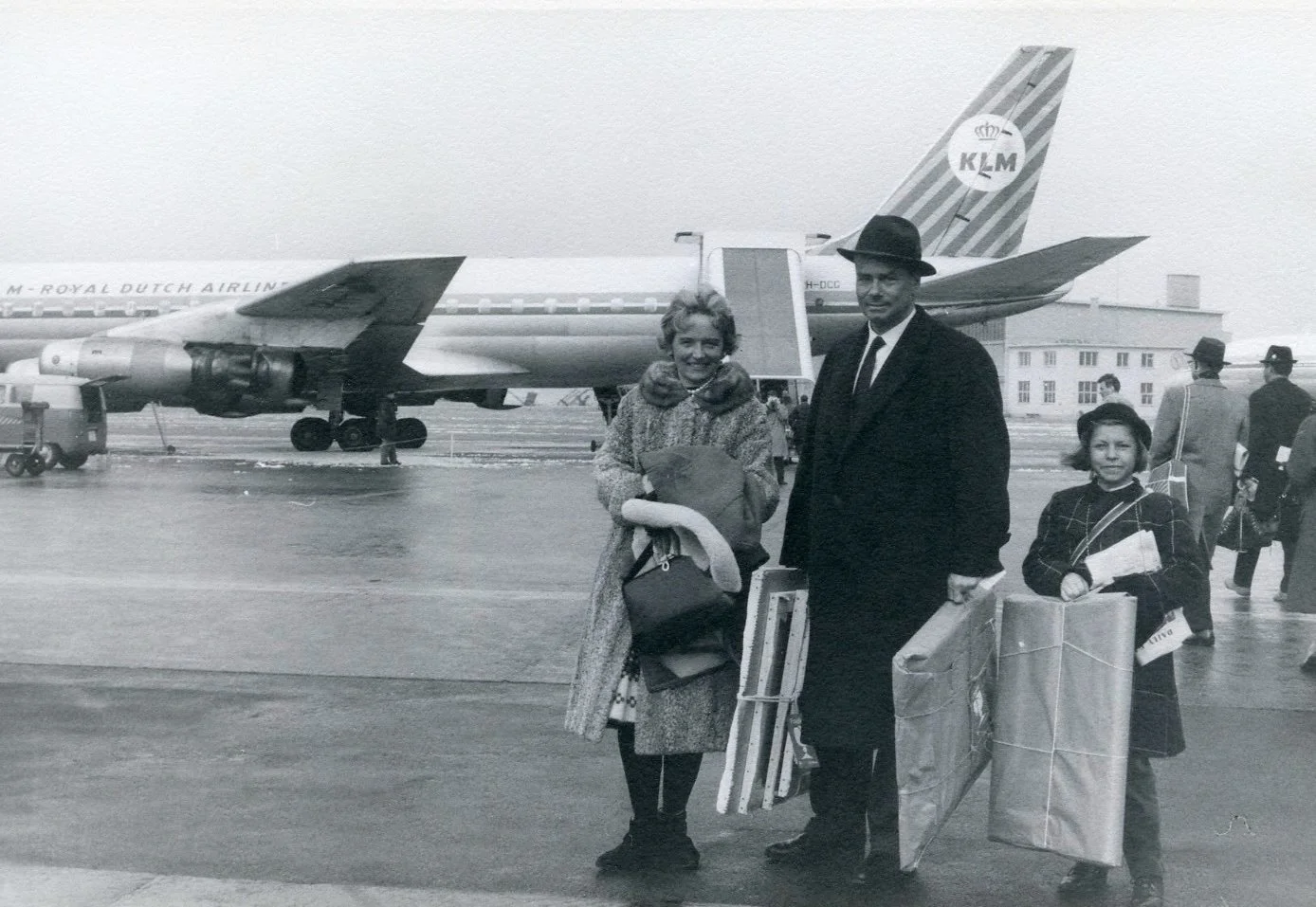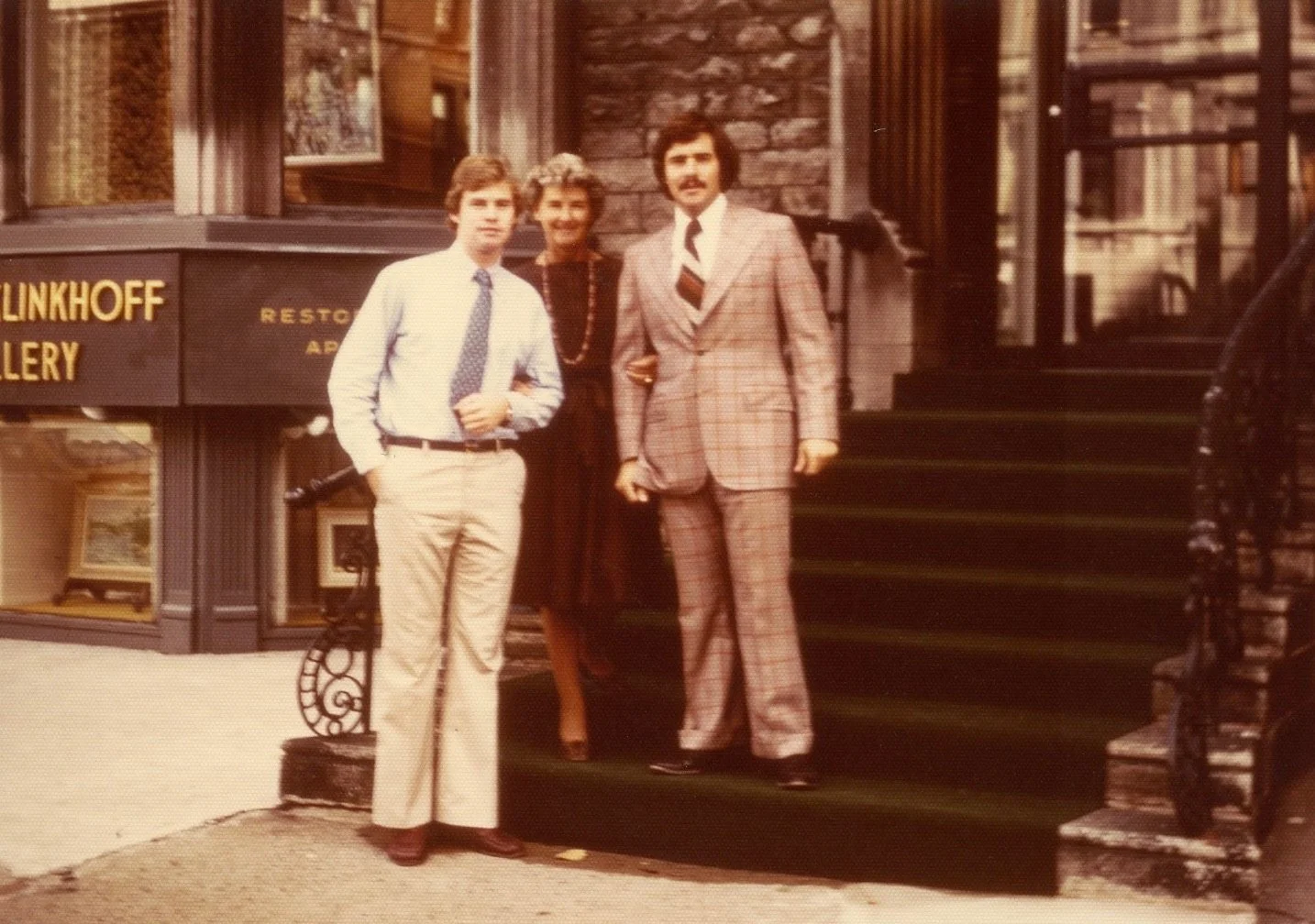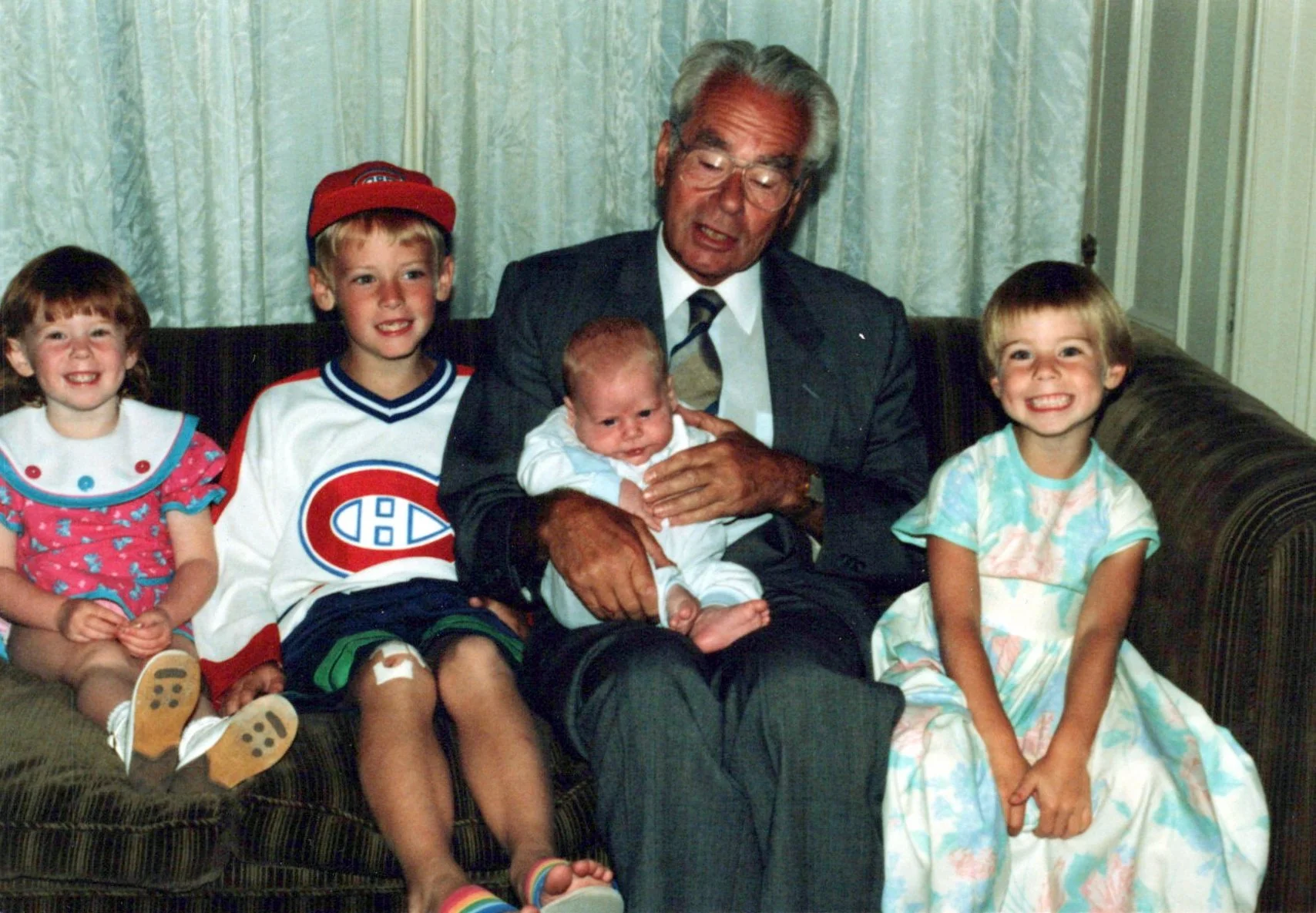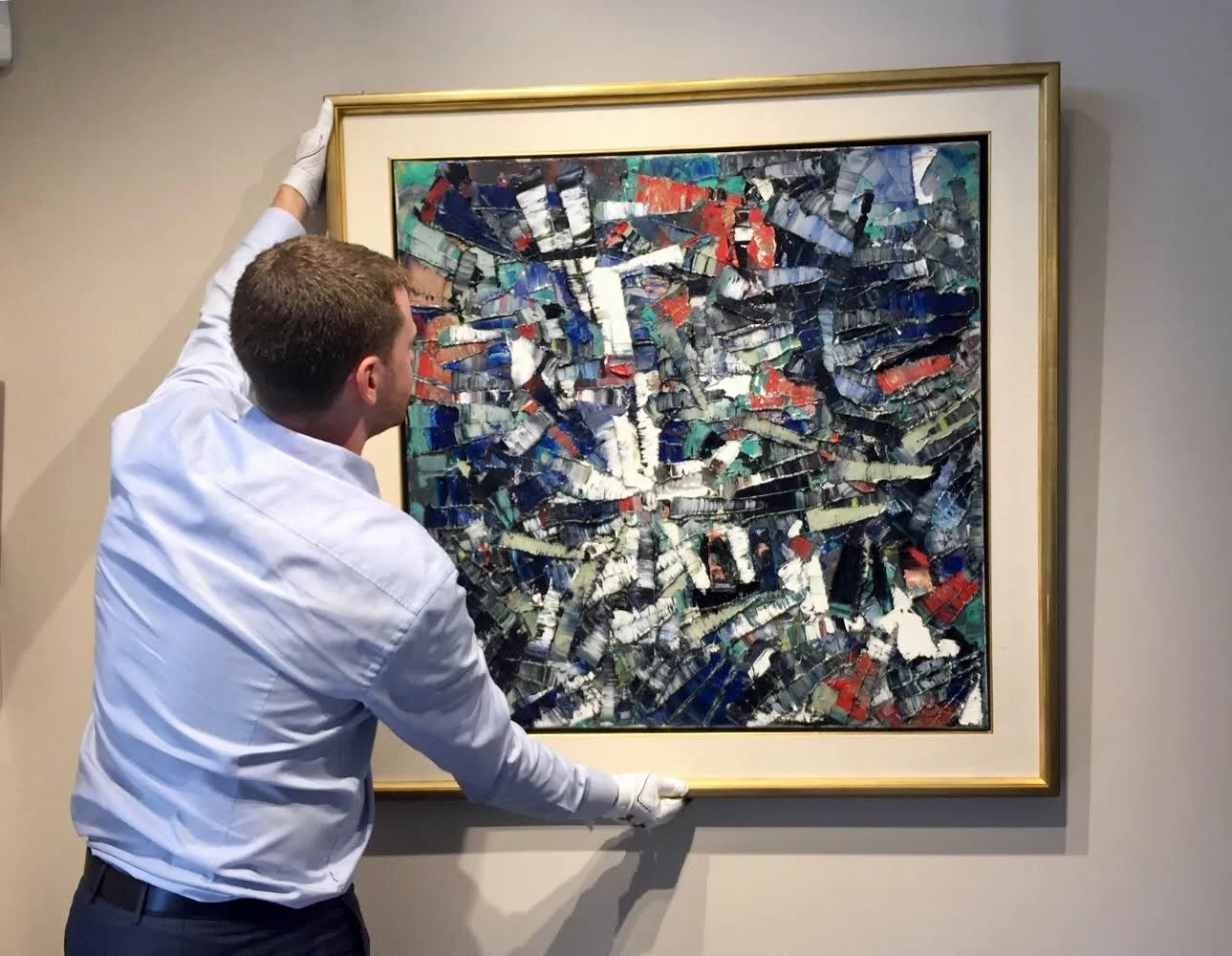About
My life has always been intertwined with the art world. From my earliest memories, I was surrounded by paintings, artists, and collectors, because my family has been part of that world for three generations
My grandparents Walter H. Klinkhoff and Gertrude Klinkhoff immigrated to Canada after the Second World War. What began as selling paintings from the family duplex on Van Horne, and even from the back of his car, grew into the lasting legacy of Galerie Walter Klinkhoff. Together, Walter and my extraordinary grandmother, Gertrude, built a gallery synonymous with integrity, expertise, and an unwavering respect for their clients and the arts.
Walter Klinkhoff (centre) transporting paintings back from Europe circa 1960
Galerie Walter Klinkhoff was far more than just a gallery. Originally on Union Avenue and later at the corner of Sherbrooke and Drummond, it helped shape collections across the country for over 60 years. The gallery represented and sold works directly on behalf of many of Canada’s most distinguished artists, including Molly Lamb and Bruno Bobak, Paul-Émile Borduas, Sam Borenstein, Nora Collyer, Marc-Aurèle Fortin, Clarence Gagnon, Prudence Heward, Edwin Holgate, A.Y. Jackson, Jean-Paul Lemieux, John Little, Kathleen Morris, Robert Pilot, Anne Savage, and Jean-Paul Riopelle.
Countless works bearing the original Galerie Walter Klinkhoff label are quiet reminders of their role in the Canadian art market.
The gallery also hosted more than 35 museum-style retrospective exhibitions. These were non-selling shows devoted to the celebration of Canadian masters. Artists honoured in this way included Emily Carr, David Milne, M.A. Suzor-Coté, and Marc-Aurèle Fortin, among dozens of others. These non-commercial exhibitions became milestones in Canadian art history, reflecting a unique private gallery commitment to scholarship and connoisseurship. At the time, many were regarded as the most significant exhibitions ever devoted to those artists, and for decades they often remained unmatched until museums followed with exhibitions of comparable quality.
Alan Klinkhoff (left) with Gertrude and Eric Klinkhoff outside the Galerie Walter Klinkhoff at 1200 Sherbrooke St. West
For me, the gallery was an extension of home. The gallery was our family’s gathering place. Summers and weekends meant working at the gallery; building crates, cataloguing collections, photographing works, making deliveries, assisting with appraisals, and even waiting in line to put red dots on paintings on behalf of clients in the democratic sales system of the day. Those experiences instilled in me not just practical skills, but also a deep appreciation for the heritage my grandparents created.
My first visit to Galerie Walter Klinkhoff
My grandmother, Trudy, in particular, is an inspiration. She shared invaluable insight into our family’s history and the principles that shaped the business. Her extraordinary and courageous role in a restitution case that reconnected us with Austria reinforced the values of stewardship, trust, and integrity that remain at the core of my work.
In my career, I have been fortunate to contribute to some of Canada’s most important collections and projects. These include work with the Collection of William I.M. Turner, A Distinguished Montreal Collector, a remarkable private collection in British Columbia, and the Collection of Mitzi and Mel Dobrin—consignors in what became the most valuable sale of Canadian art in history. I am also proud to have collaborated with outstanding teams on landmark exhibitions such as the Tribute to John Little, the multi-city James Wilson Morrice exhibition, and the innovative Fine Art & Hockey projects. By combining the vision and expertise of the original gallery with new technologies and an unprecedented level of transparency, we were able to connect with collectors from coast to coast in new and meaningful ways.
It has been a privilege to participate in, and extend, the full life cycle of a painting—from its creation by the artist, through its passage in our family’s hands, to being resold and appreciated anew. When I encounter a painting today, I don’t just see the work itself; I think of the collectors and collections it has belonged to, and the stories that accompany its journey.
With the painting “Kaiser Dank” (“Emperor’s Gratitude”), a work restituted to Hans Klinkhoff’s legal successors, who then donated it to the Vienna Museum.
Installing a painting by Jean-Paul Riopelle
Today, I work independently as an art broker and advisor, carrying forward the skills, knowledge, and values I inherited. My role is to help collectors build, refine, and steward their collections with respect for their legacies and to do so at the highest standards of professionalism. Drawing on decades of experience within a family business that managed some of Canada’s most important collections, I approach each project with care, whether archiving the estate of an artist like John Little, curating a museum exhibition, producing a book on a collection, or overseeing private portfolios of hundreds of artworks. I know how to navigate the complexities of the art world and provide solutions that are both practical and meaningful.
For me, art is more than a profession and it is a privilege to continue the legacy that began with my grandparents more than seventy years ago.




